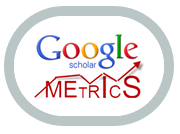INFORMATIVITY IN ARGUMENTATIVE WRITING PROCESS IN SCHOOL: ELABORATION OF PEDAGOGICAL INSTRUMENTS FROM THEORETICAL-METHODOLOGICAL ARTICULATIONS
DOI:
https://doi.org/10.47456/pl.v11i29.36788Abstract
This article aims to discuss and reflect on the criterion of informativity based on Arnemann (2020), elucidating contributions of the use of informativity in the development of teaching instruments to anchor the school students’ writing process. Thus, we approach fundamental notions on informativity, namely the low, medium, and high degrees of informativity and the definitions we consider for the terms “given” and “new”. Taking these notions into account, we explore the recontextualization from science to school context which culminated in the elaboration of the following frameworks: Framework for identifying the use of argumentative strategies and Self-evaluation framework on the textual production process, which were used by the research participants, Arnemann (2020), throughout the writing productions they developed and between the writing stages of each production; Survey for information (new and given) in the writing production and Framework for signposting informativity, from the results of Arnemann (2020); and Interlocutor mapping, elaborated after the results. Such frameworks come from a theoretical-methodological proposal and are configured as instrument and pedagogical proposal, since they have the potential to support students and teachers’ actions in the argumentative writing process, given the challenges in relation to the text faced by those who study, teach, and/or learn.
Downloads
Downloads
Published
How to Cite
Issue
Section
License
Copyright (c) 2021 PERcursos Linguísticos

This work is licensed under a Creative Commons Attribution-NonCommercial-NoDerivatives 4.0 International License.
O autor de submissão à Revista PERcursos Linguísticos cede os direitos autorais à editora da revista (Programa de Pós-Graduação em Linguística - UFES), caso a submissão seja aceita para publicação. A responsabilidade do conteúdo dos artigos é exclusiva dos autores. É proibida a submissão integral ou parcial do texto já publicado na revista a qualquer outro periódico.
Os trabalhos aqui apresentados utilizam a licença Creative Commons CC BY: Attribution- NonCommercial- NoDerivatives 4.0 International. Para mais informações, verificar: https://creativecommons.org/licenses/by-nc-nd/4.0/
Os trabalhos na revista são arquivados pelo sistema Rede de Preservação PKP (PKP PN) e LOCKSS









